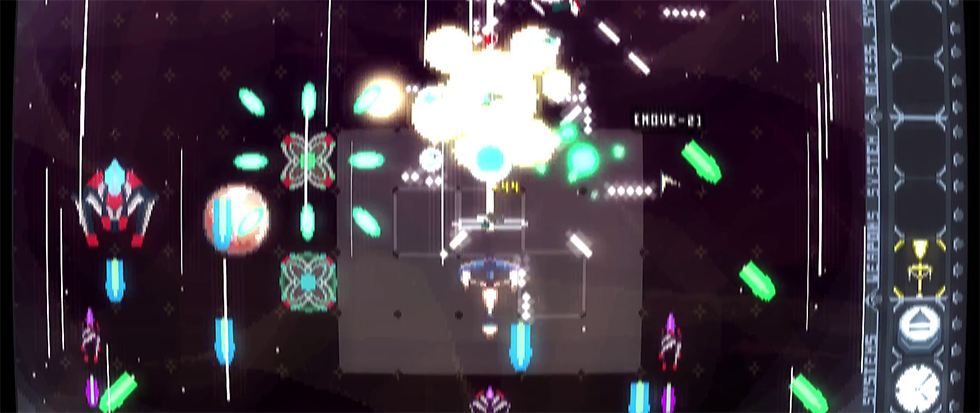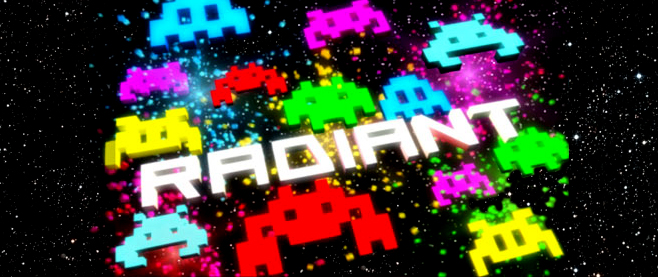
A Mandala of Space Bullets
One of my oldest friends, a longtime activist and regular inspiration to me, once invited a group of Tibetan Buddhist monks to his university in Las Vegas. A few of these groups have travelled the world for some time, to raise awareness of their struggles and persecution through cultural and musical performances as well as constructing sand mandalas. This collaborative visual art is assembled grain by colored grain, typically over a period of days, in meticulous geometric detail. After the mandala is complete, it is destroyed, swept up and returned to nature to rejoin the world.
This particular group of monks, after completing their dances, debates, throat singing, and mandala, had some time to whittle away in the festering oasis of the American Southwest. So of course they were shuttled off to a casino roller coaster, the first almost all of them had ever seen. Many of the monks were still young men, boys by our culture’s estimation, and quite thrilled to risk their earthly appendages on a few loops and g-forces. But one monk held back, shaking his head but with a sheepish smile. When asked why he didn’t want to hop on for the tooth-rattling ride, he said in simple, halting English: “Sometimes… sometimes, you die.”
I have thought about this monk a lot, as might be expected in times as turbulently bewildering as these. The memory also floats to the surface of my mind when getting wrapped up in videogames that trade in a kind of chaos built specifically to overload the senses. This experience is the salted buttery base of so-called “bullet-hell” shooters, a genre that’s evolved from the basic roots of games like Centipede, Galaga, and 1942 through the iconic Ikaruga and further cross-pollinated through the rightfully acclaimed genre multi-hyphenate Nier: Automata. Bullet-hell games are crafted to throw the player into a tightly orchestrated maelstrom, an inscrutable dance to a first-time player or spectator. They are about developing rhythms and automatic reactions rather than overthinking every step or possible decision and outcome.
It takes time to work up these rhythms, that’s part of the fun—cracking each level’s elaborate code, the webs of intricate danger that you must weave your way through until time melts away and you become one with the game, calculus equations swirling around your head. But the experience is daunting, and in order to keep yourself from living in the salty tilt of cyclical destruction, once must accept that “sometimes you die.”
Next Jump: Shmup Tactics lays out its thesis in the subtitle: shoot-em-up (“shmup”) tactics. Can you strip the bullet-hell shooter from active time and retain a sense of the sublime ballet? Yes, for the most part—filtered through the CRT scanlined glasses of history, Next Jump excises the need for highly articulated finger reflexes while subsisting on the top-down, ship vs. shooting ships madness originally designed to consume quarters and yen. Space still bursts with enemy ammunition, but the player can breathe and work the grid in their own time. For the most part they control a single vessel, gathering scrap to pay for upgrades, but each encounter is brief, not necessarily meant to be an exercise in total oblivion.
For all the tactical elements pulled from early Fire Emblem and the like, Next Jump biggest strength is that maintains the on-screen visual clusterfuck of bullet-hell shooters. Most of the game is spent jumping through skirmishes collecting resources, but the end finds you faced against a dragon-ship that you must engage with and survive against for a comparatively long time. The screen blooms with bulbous and deadly color, and it can be difficult to accurately anticipate when and where every dangerous element will shift and collide against you. As such it can be nearly impossible at points to anticipate every threat around you, leaving some calls to the gut. The chaos does not relent, but at least you can sip rather than shotgun the stream.
In bullet-hell, tactics, and life, man plans and god/nature/the universe laughs. You can drill those fingers or try to anticipate every possible outcome, but in the end we are flawed beings living at the whims of the cosmos. Next Jump successfully merges two seemingly incongruous genres into a videogame that freezes chaos without dismantling the succulent incomprehension. Because in every flavor of bullet-hell, sometimes you die, without explanation, despite your meticulous planning or well-honed reflexes. But sometimes you live, and that life can be so sweet, even if it also is inevitably swept back into space dust.





